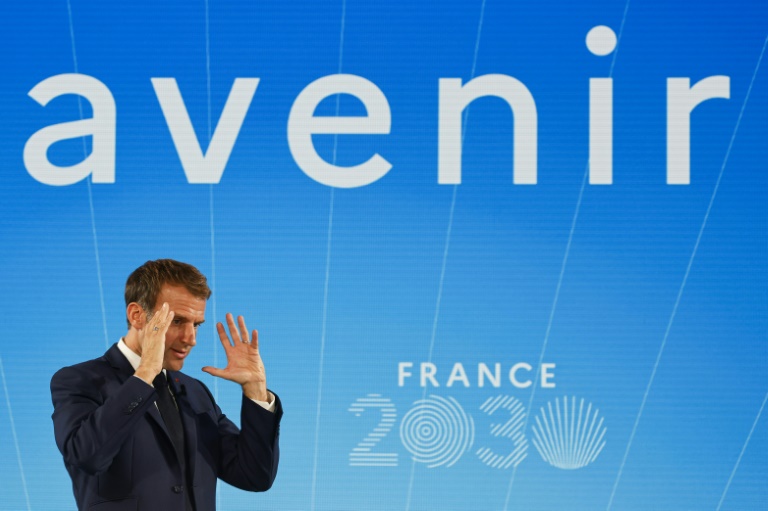President Emmanuel Macron on Tuesday announced a plan worth 30 billion euros ($35 billion) to re-industrialise France on the basis of innovative and green-friendly technologies including electric cars, hydrogen fuel and efficient nuclear plants.
Six months before a presidential election and one month ahead of a UN climate summit, Macron said France had taken key decisions “15-20 years later than some of our European neighbours” and now needed “to become a nation of innovation and research again”.
The spending was to address “a kind of growth deficit” for France brought on by insufficient investment in the past, he told an audience of company leaders and university students at the Elysee Palace.
France, he said, needed to return to “a virtuous cycle” which consisted of “innovating, producing and exporting and in that way finance our social model” as part of a new “France 2030” plan.
Over the next decade, France would aim to become a global leader in green hydrogen, which companies and governments are increasingly putting at the centre of efforts to de-carbonise economic sectors that rely most on fossil fuels for their energy needs.
France would get two electrolysis giga-factories for hydrogen production, as part of eight billion euros of investment in the energy sector.
He said that following the Covid-19 pandemic, “which put us face to face with our vulnerabilities”, France had to work towards French and European productive autonomy.
France also needed to invest heavily in medical research, Macron said.
After the global Covid-19 outbreak, French pharma giants were unable to come up with a vaccine, unlike biotech startups BioNTech and Moderna.
The aim was now for France to develop “at least 20” biotech drugs against cancers, as well as against emerging and chronic illnesses, including those associated with ageing, Macron said.
“We need to concentrate all our efforts on this objective,” he said.
– A new revolution –
A French presidential official, who asked not to be named, said Macron had laid out the plan in the wake of the coronavirus crisis “which showed our vulnerability and our dependence on foreign countries in some key sectors but also the importance of innovation which can change everything.”
French officials believe that France needs to act rapidly to close the gap and not surrender more ground to emerging powers, notably China.
French carmakers, which Macron said had suffered “cruelly” over the past 30 years, should redirect their efforts towards cleaner vehicles, with a target of putting two million electric or hybrid cars on the roads.
France would also invest “massively” to get the first low-carbon aircraft into the air with the help of European partners, he said.
Macron said France would also spend one billion euros by 2030 in “disruptive innovation” to produce atomic power, notably by designing compact nuclear reactors known as “small modular reactors” (SMRs) with improved nuclear waste management.
Disruptive innovation was also needed in agriculture, where two billion euros would be earmarked for new technologies, he said, especially in robotics.
– ‘Macronian propaganda’ –
France should start “a new revolution” in food production which should be “healthy, sustainable and traceable”.
Agriculture would become cleaner, phase out “some pesticides”, enjoy greater productivity and develop “bio-solutions” that would be “more resilient and more solid”, the president said.
Close to six billion euros were meanwhile earmarked for France’s electronics sector with the aim of doubling production and “secure” the country’s supply needs for microchips.
Opposition figures were quick to criticise Macron for the timing of the announcement, with Marine Le Pen, his far-right challenger in the April 2022 presidential election, saying he was “making promises that his successor has to keep”.
Leftist candidate Jean-Luc Melenchon called the speech “Macronian propaganda”, while NGO Greenpeace meanwhile accused Macron of subscribing to a logic that “always delays any real transition and continues to produce as if the planet’s resources were infinite”.









